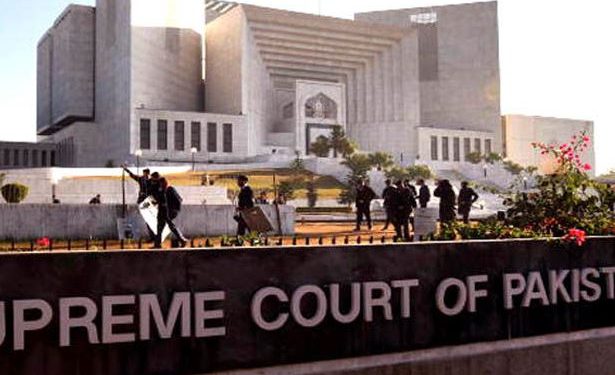Islamabad: Pakistan’s Supreme Court Tuesday adjourned the hearing until Thursday in a key case that would settle the issue of lifetime disqualification of some leading politicians, including former prime ministers Nawaz Sharif and Imran Khan.
The verdict will determine once and for all the controversy around the period of disqualification under Article 62(1)(f) of the Constitution and the Elections Act 2017.
A 2018 judgment by a five-member bench of the apex court had declared that disqualification under Article 62(1)(f) was for life but changes made in the Elections Act 2017 June 26, 2023, by a coalition government led by Pakistan Muslim League-Nawaz (PML-N) restricted it to a five-year term only.
A seven-member bench, headed by Chief Justice Qazi Faez Isa, while hearing the case today, said that some people were trying to create the impression that the court wanted to give benefit to some “individual or group” through this case.
“We are just trying to settle an issue of law,” he stated.
Most of the arguments were in favour of nullifying the concept of the lifelong ban and limiting it to a five-year term. However, the chief justice said that he also wanted to hear arguments in support of lifelong disqualification and asked the lawyers to come forward.
Later, he adjourned the hearing until January 4 with the remarks that the court would like to wind up the case and settle the legal controversy over the length of disqualification.
Sharif, the former prime minister and also a frontrunner for the fourth term in the February 8 general elections, was disqualified in the Panama Papers case in 2017. His rival Imran Khan, who was disqualified in the Toshakhana case last year, also was hit by the same law.
However, Sharif got a kind of relief when his party-led government amended the election laws last year to limit the disqualification to five years which allowed him to file nomination papers for the upcoming elections.
However, the controversy was not over as his candidature has been challenged as the interpretation of Article 62 (1) (f) clashed with the changes made in the Elections Act 2017.
The outcome of the hearing would decide the future for both Sharif and Khan as well as many other politicians. The 74-year-old Sharif’s case was final until the period of disqualification was reduced. However, 71-year-old Khan’s disqualification has not attained finality and his appeal against it is still pending.
Incarcerated Khan’s nomination papers for the February 8 general elections were rejected on December 30 based on disqualification due to his conviction in the offence of “moral turpitude” in a corruption case and other reasons, a government official had reasoned.
Earlier, the issue came into the focus of the Supreme Court last month during the hearing of a petition of a politician from Dera Ghazi Khan, Badshah Khan Qaisarani, who was disqualified for producing a fake graduation degree.
During the hearing, the chief justice had remarked that the Supreme Court verdict on lifetime disqualification and the amendments made to the Elections Act, 2017 could not co-exist. He further stated that discrepancies in the apex court’s interpretation and the law could result in “confusion” in the upcoming general elections.
PTI






































